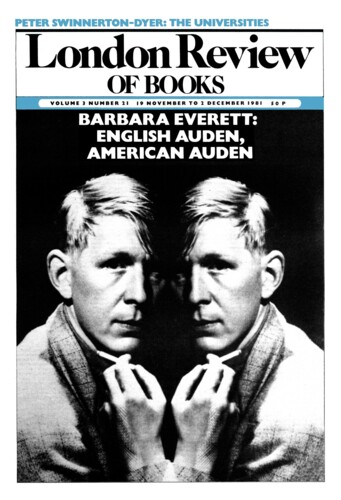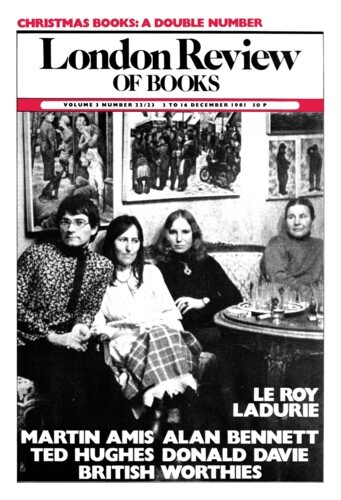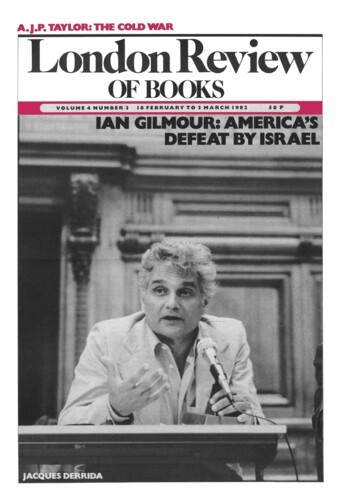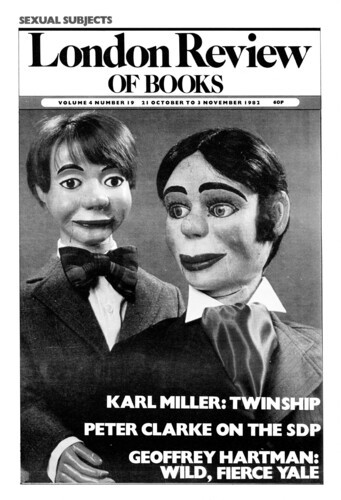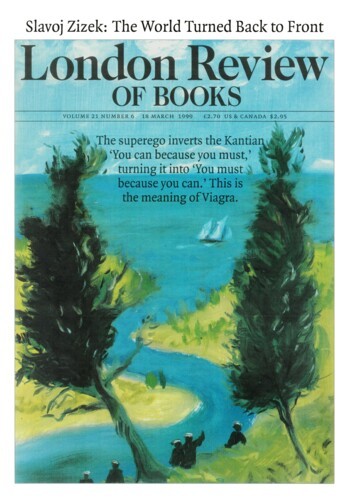Jean-Paul
Alan Hollinghurst, 19 November 1981
Michel Tournier’s Gemini was published in France six years ago under the title of Les Météores, but it arrives in this country, in Anne Carter’s convincing and sometimes virtuosic translation, with none of the trumpeting which announced his earlier triumphs, Friday and The Erl King. All his publishers have managed to come up with is an ambiguous commendation from Genet: ‘An exceptional, incomparable novel’. Le Roi des Aulnes is the only novel to have won the Prix Goncourt by unanimous decision, but Les Météores has enjoyed less acclaim, and it is not hard to see why: it is the work of a mind expanding under the apparent beneficence of praise, performing with both an obligation to grandeur and a licence to self-indulgence. The grandeur is frequently impressive, the project kept up with remarkable stamina: but the self-indulgence, as well as weakening the structure, also undermines the confidence of the reader. Tournier is not a man to make a point once if he can make it a dozen times, or to use one word if he can use a thousand. Subjected to this immense performance of reiterative loquacity the reader increasingly responds with both ‘I know …’ and ‘What, really, does it mean?’
